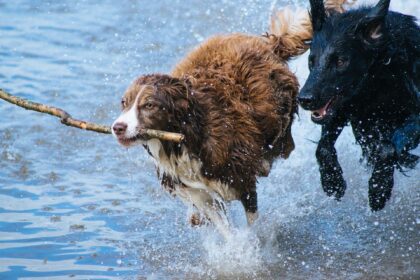All the questions you may not even know to ask in relation to microchipping your Newfoundland – learn about your microchipping responsibilities as a responsible pet owner.
Newfoundland
Bred as a working dog, they are known for their strength, loyalty, and gentle nature.
They were originally used to help fishermen haul nets and lines from boats, and to pull carts.
Today, they are still used as working dogs, but are also popular family pets.
The breed is known for its intelligence, strength, and calm demeanor, making them excellent companions and guardians.
They are also natural swimmers, with webbed feet and a water-resistant coat.
Newfoundlands are loyal and devoted to their families, and are known for their patience and gentleness with children.
They are also highly trainable, and can excel in obedience, agility, and other activities.
The Newfoundland is a powerful and majestic breed, and is sure to bring joy and companionship to any home.
Newfoundland Breed Facts
Height (Adult): Male: 69 to 74cm Female: 63 to 69cm
Weight (Adult): Male: 45 to 59kg Female: 34 to 45kg
Life Expectancy: 9 to 10 years
Hypoallergenic: No
Origin: Canada
Temperament: Sweet, Patient, Loyal, Intelligent, and Calm
When Should I Spay or Neuter My Newfoundland?
There are many reasons why you should have your Newfoundland spayed or neutered, not least of all because it will likely improve their quality of life (and stop you from worrying about a litter of puppies). Here’s what you need to know
Is Your Newfoundland Bored? Here Are The Signs To Look For
Your Newfoundland needs your attention just as you crave theirs. It’s important you respond to them and notice if they are feeling lonely – here’s some helpful tips for you.
Best Ways To Exercise Your Newfoundland?
Statistics show 1 in 5 Newfoundland owners don’t regularly walk their dogs which can result in health problems in the long term. See our guide to a range of ways to keep them healthy.



